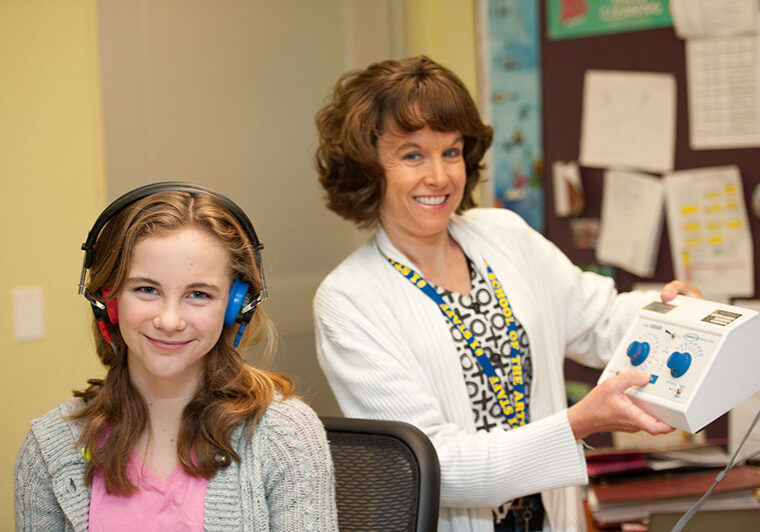As young athletes are donning their helmets and pads for fall sports practice, many parents might feel conflicted about cheering them on. This spring, the family of Tyler Hilinski, the 21-year-old Washington State University quarterback who recently died by suicide, revealed that Tyler’s athletic career may have contributed to a decline in his emotional and mental health.
Autopsy results showed that Tyler had CTE, chronic traumatic encephalopathy, a degenerative brain disease thought to result from repetitive brain injuries. Over time, the disease kills brain cells and is linked to cognitive and behavioral changes, including aggression, depression, and problems with impulse control.
The tragedy raises questions about how to keep sports-minded kids—and their developing brains—safe. Here’s what to know before your kid laces up.
What is CTE?
First discovered 90 years ago, CTE was rarely diagnosed until 2005, when evidence of CTE was found in the brain of former Pittsburgh Steeler Mike Webster.
Over the past decade, scientific understanding of brain trauma has advanced the study of CTE, which has been found in the brains of 99 percent of NFL players and 91 percent of college football players, according to a report published in the Journal of the American Medical Association.
According to the Concussion Legacy Foundation, CTE is caused by repeated (think hundreds or thousands) of brain traumas, generally sustained over years of participation in contact sports. Over time, a protein called Tau forms clumps that spread through the brain, killing vital brain cells and contributing to permanent, progressive cognitive decline. Symptoms of CTE, which can sometimes resemble those of dementia, include aggression, impaired memory, emotional instability, and slowed thinking
The vast majority of CTE cases result from tackle football, according to the Concussion Legacy Foundation. But CTE has been also found in the brains of boxers, soccer players, hockey players, military veterans and victims of domestic violence. Emotional and behavioral symptoms like depression and impulse control tend to appear in the 20s and 30s, while cognitive decline appears later, in the 40s and 50s.
What are the signs of concussions?
Most kids have weathered a head bump or two—and while brain injuries should be taken seriously, a single concussion has never been shown to cause CTE. But caregivers and coaches should be vigilant about preventing and treating concussion.
There are no blood tests for concussion, so doctors use observed and reported signs and symptoms to determine whether one occurred. Symptoms can appear immediately, but some take hours or days to emerge.
Immediate signs include headache or a feeling of pressure in the head, dizziness, fatigue, brain fog, and “seeing stars.” Less immediate symptoms include disorientation, sensitivity to light, changes in eating or sleeping patterns, and irritability.
My kid’s in sports — what precautions can I take?
First, ensure that all coaches and support staff are trained to recognize and respond to concussion. Contact the athletic director at your child’s school to ask about what type of training coaches receive.
Insist on a properly fitted helmet that’s worn for all contact activities, including practice.
If your child is diagnosed with a concussion, follow your healthcare provider’s recommended treatment plan, and don’t send your child to practice or a game until cleared for play by his or her physician.
Finally, consider delaying exposure to high-contact game play. Recent research suggests that the age at which contact sports begin can affect the lifelong risk for CTE; exposure to head impacts before age 12 is associated with more negative outcomes than impacts that occur later on.
Posted in: Health & Nutrition, Out & About
Comment Policy: All viewpoints are welcome, but comments should remain relevant. Personal attacks, profanity, and aggressive behavior are not allowed. No spam, advertising, or promoting of products/services. Please, only use your real name and limit the amount of links submitted in your comment.
You Might Also Like...

’Tis The Season for Holiday Parades and Lights in the North State
There’s always something magical about holiday parades and light displays. This has become a tradition for many families and is also a great way to get into the holiday spirit. […]

Preserving the Past for Future Generations
6 North State Historical Societies Tehama County Museum Launching its first website Tucked away in the Northern California Sacramento Valley, surrounded by mountains and an abundant agricultural community, the Tehama […]

The North State Is A Bike Lover’s Paradise
Biking in the North State is a growing passion for many families, with new trails popping up throughout the area. Starting your kids young with this healthy, fun family activity […]

3 Tips To Help Kids Face Their Fears
It’s normal for children to have fears. Kids may have bad dreams, be frightened of the dark, or find a movie scene scary. However, kids can develop fears that interrupt […]



